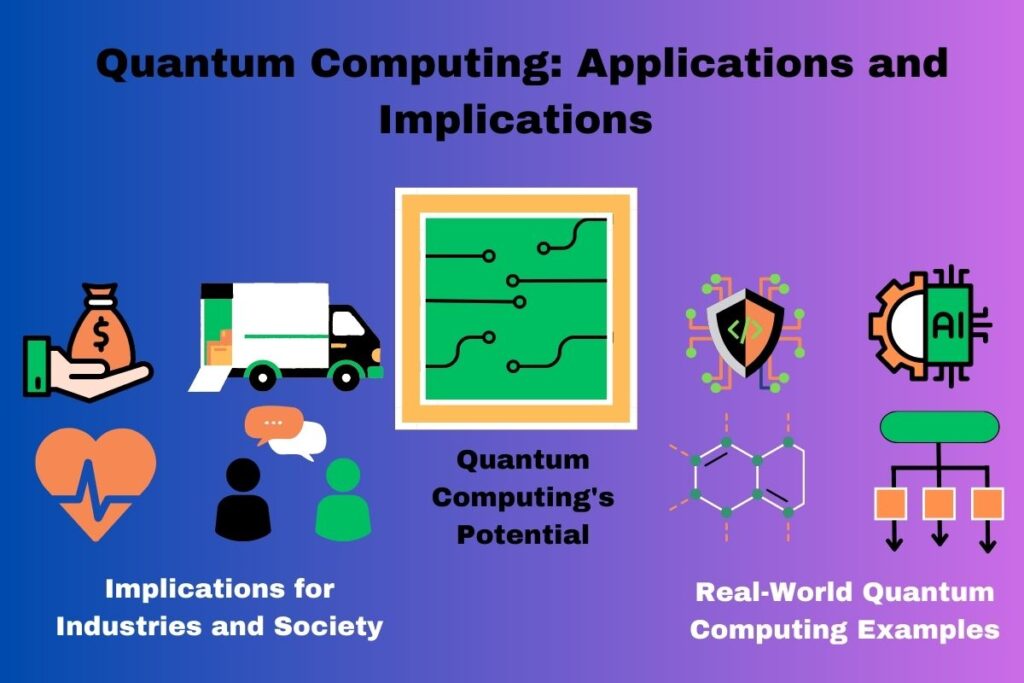Introduction
Quantum computing challenges the rules of classical computing, opening a world of limitless innovation and boundless potential. By beating boundaries, welcome to this realm. In this blog, we will dive into the fascinating realm of quantum computing, exploring its concepts, current state, and promising future. Join us on this captivating journey of exploring Quantum Computing.
Exploring Quantum Computing
What is Quantum Computing?
Quantum computing utilizes the principles of quantum mechanics to process information distinctively from classical computers. By harnessing the power of quantum mechanics, it revolutionizes the way of processing information, differing from classical computers. The field of quantum computing transforms information processing through the principles of quantum mechanics, distinct from classical computers. In contrast to classical computers, quantum computing exploits the principles of quantum mechanics for information processing.
Components of Quantum Computers
Researchers and engineers utilize qubits, quantum gates, and quantum networks to achieve high-speed and parallel processing in complex computations. These systems operate with exceptional efficiency and enable unprecedented advancements in computing technology.
The Basics of Quantum Computing
Exploring quantum computing unveils a cutting-edge field that harnesses the principles of quantum mechanics to process information, utilizing quantum bits or qubits instead of classical bits.
Quantum Supremacy and its Significance
Quantum supremacy occurs when a quantum computer surpasses the computational capacity of any classical computer, demonstrating a significant milestone in quantum computing’s advancement. As a result, new avenues for efficient resolution of complex problems emerge.
The Power of Quantum Bits (Qubits)
Qubits are the fundamental units of quantum information that can represent both 0 and 1 simultaneously due to the principle of superposition. As a result, quantum computers can perform complex calculations exponentially faster than their classical counterparts.
How Many Quantum Computers are there in 2023?
The Current Landscape of Quantum Computers
As of 2023, the number of quantum computers is rapidly growing. Moreover, exact numbers are hard to pin down, but numerous companies, research institutions, and governments worldwide invest in quantum computing research and development.
Advancements and Adoption of Quantum Computing
Due to increasing interest and investment, the number of quantum computers expects to rise significantly in the coming years. Moreover, researchers are making strides in their field by constantly improving qubit stability, error correction, and scaling up quantum systems.
Exploring Quantum Computing: Applications and Implications
Quantum Computing’s Potential
Quantum computing has the potential to revolutionize various fields like cryptography, optimization problems, drug discovery, and financial modeling. Additionally, it can tackle complex difficulties that were previously unsolvable due to its immense computational power.
Implications for Industries and Society
Progressing quantum computing impacts on industries and society will be profound. Consequently, sectors like finance, healthcare, logistics, and energy will experience significant transformations, leading to enhanced efficiency and breakthrough innovations. Moreover, these transformations will occur due to the advancements in quantum computing. Thus, industries and society can expect remarkable changes in their operations and capabilities.
Real-World Quantum Computing Examples
Scientists have already demonstrated the practical applications of quantum computing. For instance, in 2019, Google’s quantum computer successfully solved a problem that would take a classical computer thousands of years to solve.

Exploring Quantum Computing: Future Outlook and Challenges
The Road Ahead for Quantum Computing
Exploring quantum computing uncovers its immense potential while emphasizing significant challenges simultaneously that demand attention. We must scale up qubits, enhance error correction techniques, and establish stable quantum systems.
Collaborative Efforts and Research
To realize the full potential of quantum computing, a collaboration between academia, industry, and government bodies is essential. Furthermore, continued investment in research and development is crucial to launch this revolutionary technology.

Conclusion
Quantum computing revolutionizes industries and solves previously deemed unsolvable problems, opening up endless possibilities for innovation and the discovery of computational power. In our journey of exploring quantum computing in 2023, we are astounded by its potential to redefine the boundaries of computational capabilities. Exciting times lie ahead, eagerly awaiting the transformative potential of this awe-inspiring field.
Also Read: The Difference Between Social Media and Websites: Exploring Their Unique Characteristics











One thought on “Exploring Quantum Computing: A Beginner’s Guide to the Future of Technology”